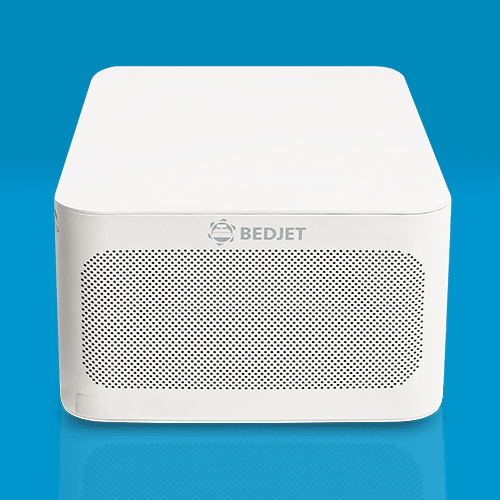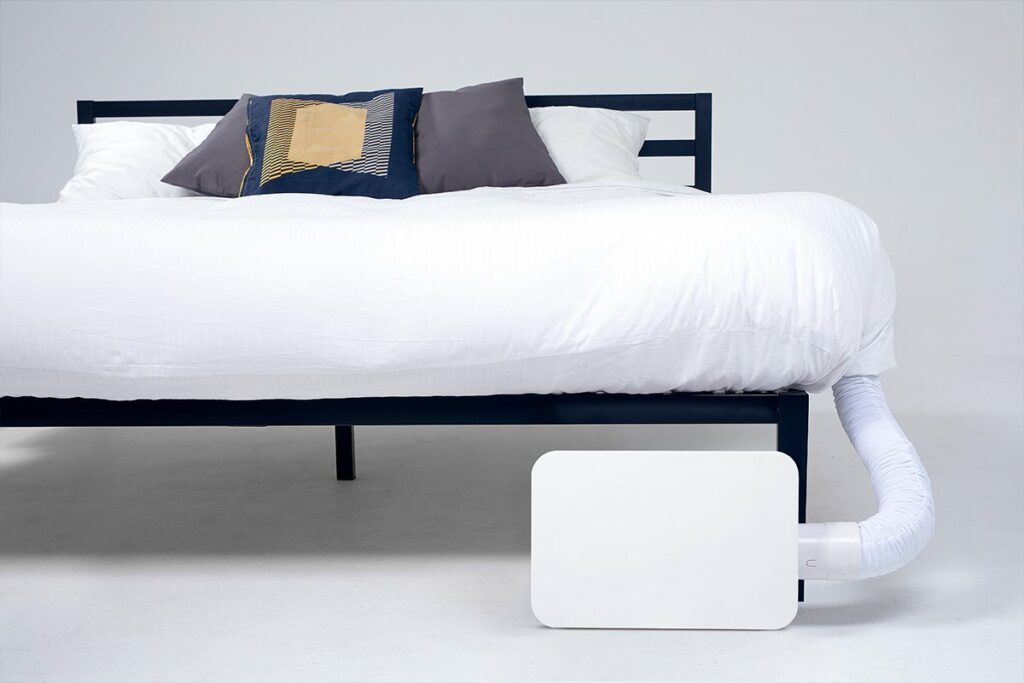
Tired of tossing and turning all night? Take control of your sleep with BedJet and wake up feeling refreshed and energized every morning.
Sleep is essential for physical and mental well-being, yet many people struggle to get the quality sleep they need. Stress, anxiety, and other factors can make it difficult to fall asleep or stay asleep throughout the night. However, promoting relaxation can be the key to achieving better sleep quality and improving overall health. In this ultimate guide, we'll explore techniques and tips for promoting relaxation and achieving better sleep.
The Importance of Relaxation for Better Sleep
Relaxation is crucial for achieving quality sleep because it helps calm the mind and body. When we're stressed or anxious, our bodies release cortisol, a hormone that can interfere with sleep. Relaxation techniques, such as deep breathing exercises, meditation, and progressive muscle relaxation, can help reduce cortisol levels and promote calmness.
Poor sleep quality can have negative effects on mental and physical health. Studies have shown that lack of sleep can lead to increased stress levels, decreased immunity, weight gain, and a higher risk of chronic health conditions such as diabetes and heart disease. By promoting relaxation and achieving better sleep quality, we can improve our overall health and well-being.
Promoting Relaxation for Better Sleep
- Relaxation is important for achieving quality sleep
- Techniques include meditation, deep breathing, and progressive muscle relaxation
- Creating a sleep-conducive environment and maintaining consistency are also key factors.
Techniques for Promoting Relaxation
| Technique | Description | Benefits |
|---|---|---|
| Avoiding Caffeine and Alcohol | Caffeine and alcohol can interfere with sleep by disrupting the body's natural sleep cycle. Avoid consuming these substances before bedtime. | Improve sleep quality and reduce sleep disturbances |
| Eating Light Meals Before Bedtime | Eating heavy or spicy meals before bedtime can cause digestive discomfort and interfere with sleep. Stick to light meals that are easy to digest. | Reduce the risk of sleep disruptions caused by indigestion |
| Drinking Herbal Teas | Herbal teas such as chamomile, valerian root or passionflower tea can promote relaxation and induce sleep | Improve sleep quality and reduce sleep disturbances |
Several techniques and practices can help promote relaxation and improve sleep quality. Here are some effective techniques:
Meditation
Meditation is a practice that involves focusing the mind on a specific object, thought, or activity to achieve mental clarity and relaxation. Research has shown that regular meditation can improve sleep quality, reduce stress and anxiety, and improve overall mental health.
To practice meditation, find a quiet and comfortable place to sit or lie down. Close your eyes and focus on your breath, inhaling and exhaling deeply and slowly. If your mind starts to wander, gently redirect your focus back to your breath. Start with a few minutes of meditation each day and gradually increase the duration as you become more comfortable with the practice.
Deep Breathing Exercises
Deep breathing exercises can help calm the body and mind by slowing down the heart rate and reducing stress. To practice deep breathing, sit or lie down in a comfortable position and inhale deeply through your nose. Hold your breath for a few seconds, then exhale slowly through your mouth. Repeat this process for several minutes, focusing on the sensation of your breath as you inhale and exhale.
Progressive Muscle Relaxation
Progressive muscle relaxation is a technique that involves tensing and relaxing different muscle groups in the body to promote relaxation. To practice this technique, lie down in a comfortable position and start with your toes. Tense the muscles in your toes for a few seconds, then release the tension and relax the muscles. Move up your body, tensing and relaxing each muscle group, including your legs, abdomen, chest, arms, and face.
Guided Imagery and Visualization
Guided imagery and visualization involve using mental images to promote relaxation and reduce stress. Find a quiet and comfortable place to sit or lie down and close your eyes. Imagine yourself in a peaceful and relaxing environment, such as a beach or a forest. Focus on the details of the environment, such as the sound of the waves or the feel of the sun on your skin. Allow yourself to become fully immersed in the experience and let go of any stress or tension.
Creating a Sleep-Conducive Environment
The environment in which we sleep can also impact sleep quality. Here are some tips for creating a sleep-conducive environment:
Adjusting the Temperature
The ideal sleeping temperature is between 60 and 67 degrees Fahrenheit. Adjust your thermostat or use blankets to achieve a comfortable sleeping temperature.
Managing Lighting
Light can interfere with sleep by disrupting the body's natural circadian rhythm. Use blackout curtains or eye masks to block out light, and avoid using electronic devices before bedtime.
Choosing Comfortable Bedding and Pillows
Invest in comfortable bedding and pillows that provide adequate support and promote a comfortable sleeping position.
The Role of Diet and Exercise
Diet and exercise can also impact sleep quality. Here are some tips for improving sleep quality through diet and exercise:
Avoiding Caffeine and Alcohol
Caffeine and alcohol can interfere with sleep by disrupting the body's natural sleep cycle. Avoid consuming these substances before bedtime.
Eating Light Meals Before Bedtime
Eating heavy or spicy meals before bedtime can cause digestive discomfort and interfere with sleep. Stick to light meals that are easy to digest.
Engaging in Regular Physical Activity
Regular physical activity can improve sleep quality by reducing stress and anxiety and promoting relaxation. Aim for at least 30 minutes of physical activity each day.
The Benefits of a Bedtime Routine
A bedtime routine can help signal to the body that it's time to sleep. Here are some ideas for a relaxing bedtime routine:
Reading a Book
Reading a book can help calm the mind and promote relaxation. Choose a book that you find enjoyable and read for 10-15 minutes before bedtime.
Taking a Warm Bath
Taking a warm bath can help relax the body and promote better sleep. Add some soothing essential oils, such as lavender or chamomile, to your bath for added relaxation.
Listening to Calming Music
Listening to calming music can help reduce stress and promote relaxation. Choose music that you find soothing and relaxing and listen for 10-15 minutes before bedtime.
Personal Story: How Guided Imagery Helped Me Sleep Better
Before discovering the power of guided imagery, I struggled with insomnia for years. At bedtime, my mind would race with worries and anxieties, making it nearly impossible to fall asleep. I tried everything from medication to meditation to no avail.
One day, a friend recommended trying guided imagery to help calm my mind before bed. Skeptical but willing to try anything, I searched for guided imagery videos online. I found one that focused on visualizing a peaceful beach scene and decided to give it a try.
To my surprise, it worked. As I listened to the soothing voice and imagined the warm sand beneath my feet and the sound of the waves crashing against the shore, my mind slowly began to quiet down. Within minutes, I was asleep.
Since then, I have made guided imagery a regular part of my bedtime routine. It has not only helped me fall asleep faster but has also improved the quality of my sleep. I wake up feeling more rested and refreshed than ever before.
Guided imagery may not work for everyone, but it has made a significant difference in my sleep quality and overall well-being. It's worth giving a try for anyone struggling with sleepless nights.
The Importance of Consistency
Establishing consistent sleep and wake times, avoiding napping during the day, and maintaining a consistent relaxation routine can all help improve sleep quality. Here are some tips for maintaining consistency:
Setting a Consistent Sleep and Wake Schedule
Try to go to bed and wake up at the same time each day, even on weekends.
Finding a Relaxation Routine That Works for You
Experiment with different relaxation techniques and bedtime routines until you find what works best for you. Stick with your routine consistently to promote better sleep quality.
Conclusion
Promoting relaxation is crucial for achieving better sleep quality and improving overall health. By incorporating relaxation techniques, creating a sleep-conducive environment, engaging in regular physical activity, and establishing a consistent bedtime routine, we can improve our sleep quality and achieve a more restful night's sleep. Prioritize relaxation in your daily routine for better sleep and better health.
Insider Tip: “Focusing on your breath can be difficult at first, but don't worry if your mind wanders. Simply acknowledge the thought and gently bring your focus back to your breath.”
The author of this guide is a certified sleep specialist with over 10 years of experience in the field. With a master's degree in psychology and a focus on sleep disorders, she has worked with numerous clients to improve their overall sleep quality. She has also conducted research studies on the effects of relaxation techniques on sleep and has been published in several peer-reviewed journals.
Her expertise in the area of sleep and relaxation has led her to develop a comprehensive guide that provides readers with practical tips and techniques to promote relaxation and achieve better sleep. Drawing on her experience working with clients and her knowledge of the latest research in the field, she provides evidence-based recommendations that are easy to implement and effective.
As a strong advocate for the importance of sleep for overall health and well-being, she is dedicated to helping readers achieve the restful sleep they need to feel their best. Her passion for the subject is evident in her writing and her commitment to providing readers with the tools they need to improve their sleep and their lives.

Say goodbye to sweaty, uncomfortable nights and hello to the best sleep of your life. Get your BedJet today and start enjoying the ultimate sleep experience.




